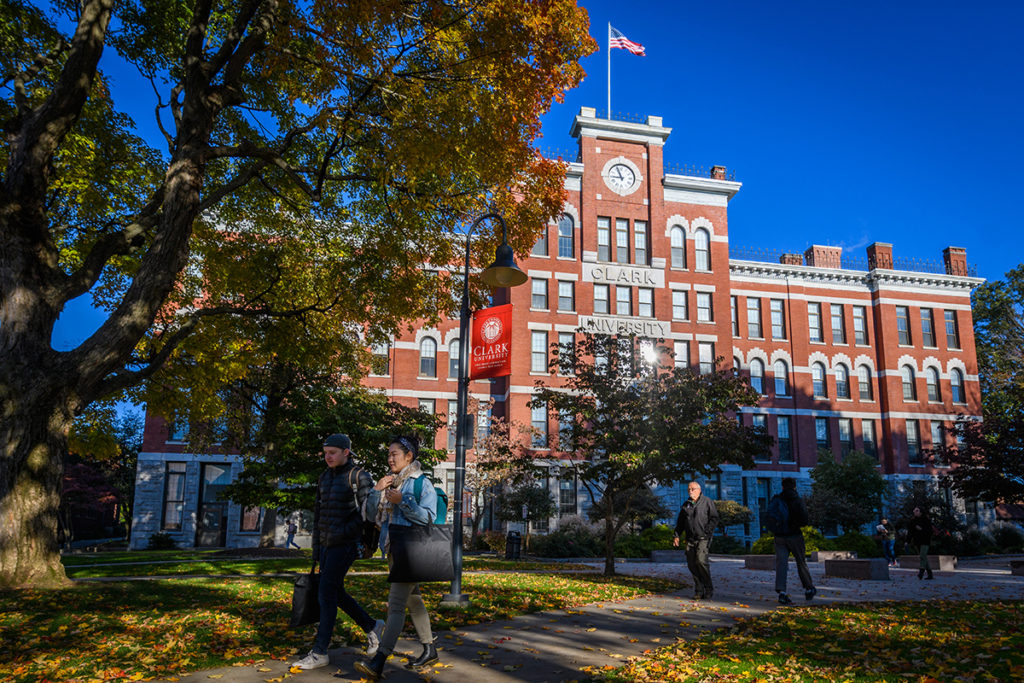Clark University featured in Princeton Review’s ‘Guide to 399 Green Colleges’

Clark University is among the most environmentally responsible colleges, according to The Princeton Review. The university is included in the education services company’s “The Princeton Review Guide to 399 Green Colleges.”
“We are delighted that Clark is again in the Princeton Review’s Green Colleges for the tenth consecutive year — in fact, since it began publication,” said Jenny Isler, director of sustainability at Clark. “That is a testament not only to how ‘green’ Clark is, but also to the University’s long-standing commitment to address the complex issues of economic, social, and environmental sustainability. It clearly shows how hard our students, faculty, and administration work to keep Clark ahead of the curve, leading the way in effective sustainability initiatives, programs, curricula and research.”
The guide notes that with its bold Climate Action Plan, which sets a goal of zero emissions by 2030, Clark is one of few schools to choose such an early date. Also highlighted are green campus features including the cogeneration plant, which provides heat and power to 70 percent of campus; the student Recycling Crew and its 2017 waste diversion rate of 58 percent; the composting program, which composts 100 percent of food and paper waste in the Higgins Café; and the campus’ Electric Vehicle charging stations, which were the first in central Massachusetts.
The Princeton Review chose the colleges based on “green rating” scores the company tallied in summer 2018, using data from its 2017-2018 survey of administrators at the colleges. Schools received scores, from 60 to 99, for their sustainability-related policies, practices, and programs. More than 25 data points were weighted in the assessment. Schools with green rating scores of 80 or higher made it into the guide; Clark received a green rating score of 91.
The profiles in The Princeton Review’s “Guide to 399 Green Colleges” provide information about each school’s admission requirements, cost and financial aid, and student body stats. Each profile also lists “Green Facts” that include details on the availability of transportation alternatives at the schools and the percentage of the school food budgets spent on local/organic food.
The free guide is available on the Princeton Review website.


